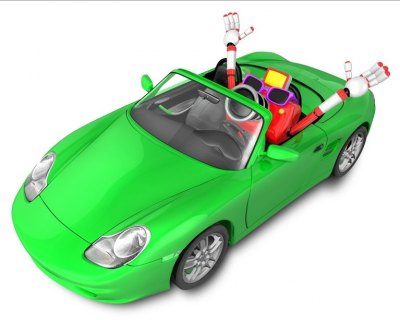NASA, Nissan to research self-driving cars

Computers may soon replace us behind the wheel.
All that might happen – and sooner than you think.
NASA’s Ames Research Center and Nissan North America have signed an agreement to partner in researching prototypes of self-driving cars. The two will work together in developing robotics, human-machine interface, software analysis and network-enabled applications. NASA will provide limited use of the Ames campus in California's Silicon Valley for testing, according to a Jan. 9 agency news release.
The tests will be a step toward “autonomous vehicles” in the transportation of goods or humans. NASA has been running vehicles without humans for years: Scientists remotely operate planetary rovers on Mars from the space agency’s mission control center.
Nissan previously announced that it planned to have a commercially viable autonomous car on the road by 2020. Already, prototypes can detect road conditions and automatically operate the steering, braking and acceleration, according to the company’s website. The cars can even merge into traffic and change lanes.
The NASA-Nissan deal works for both the space agency and the car company. NASA will benefit from the shared research and development of robotic software. Nissan will be able to better plan for development of autonomous vehicles.
These high-tech cars are another step in the ever-evolving sophistication of vehicles. Already, various car companies offer computerized screens that help SUV owners while backing out, nudge drivers when they are veering into another lane and alert them of dangerous conditions.
The goal is to deliver safer vehicles. Drivers who want to surf the Internet while on the road will be able to do so freely. But the word “autonomy” means self-governing, and there’s an open question of whether drivers will want to let a computer take the wheel.
Related:

